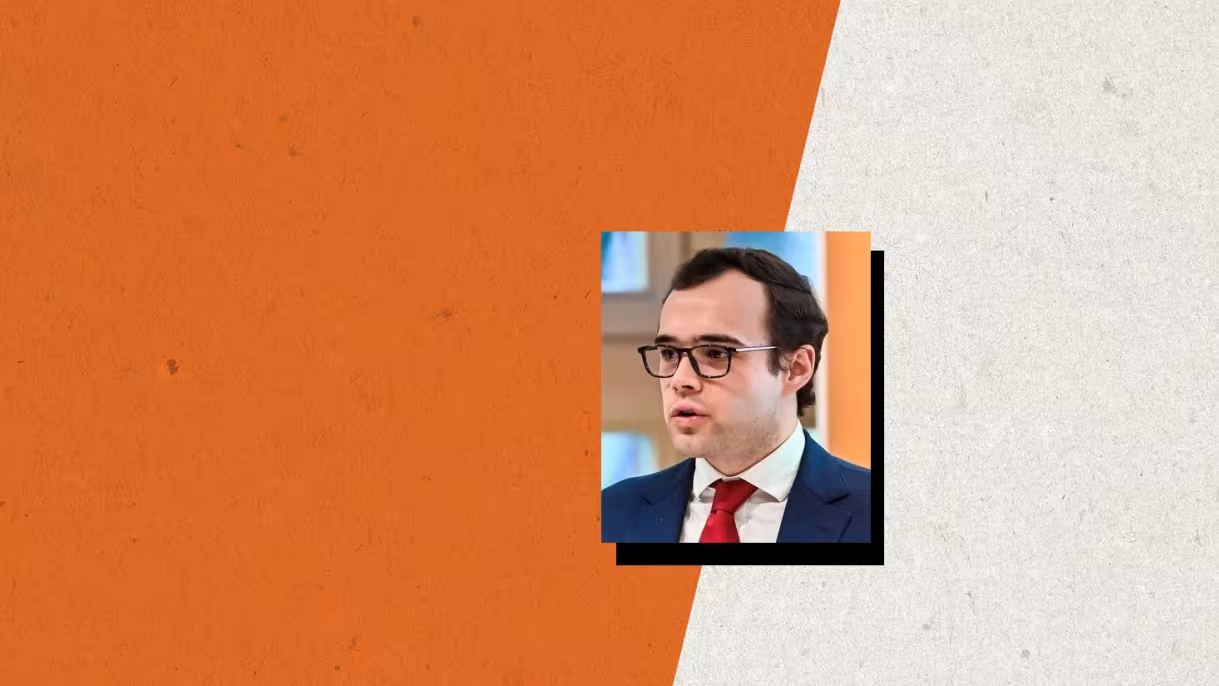

For Fulbright Schuman Grantee, a Focus on Values Kindles Studies in Europe
Henry Barrett’s journey to Budapest and Prague, where he is spending the year on a Fulbright Schuman grant, began in a Robertson Hall bowl in November of 2018.
A few days earlier, Russia’s coast guard had fired on three Ukrainian Navy ships in the Kerch Strait, just off the Crimean Peninsula. SPIA convened a panel discussion on the incident, and one of the panelists was Anatoly Antanov, Russia’s ambassador to the United States. Henry Barrett, then a Princeton freshman, sat in the audience, enraptured by the stimulating conversation he was watching.
“It's actually quite unimaginable now to think that a meeting like that would happen,” Barrett recalls. “I was fascinated by this Russian diplomat who did not mince words about his perspective on American political life. And I wanted to learn more about the diplomatic perspective from America to Russia, and vice versa, after this talk.”
Duly inspired, Barrett went on to take classes in Russian literature and modern Eastern European affairs, and in the fall of his junior year, he participated in the Policy Task Force “Rethinking U.S.-European Relations.” He wrote his first Junior Paper on Russian foreign policy; the following year, he focused his senior thesis on Hungary’s relationship to the European Union.
After graduating with his bachelor’s in 2022, Barrett spent a year working in the private sector. But he couldn’t shake the thrill he’d gotten from his studies at Princeton.
“That interest was really sparked in SPIA,” he says. “It has endured ever since, and has coalesced more so since Russia’s invasion of Ukraine.”
He applied to and was accepted by the Fulbright Schuman Program, which provides grants for citizens of EU Member States to conduct research in the United States and to American citizens to conduct research in the European Union. The program was created in 1990 and is administered by the Fulbright Commission in Brussels and jointly financed by the U.S. State Department and the Directorate-General for Education, Youth, Sport and Culture of the European Commission.
Barrett is currently working in Hungary with two think tanks; in February, he will head to the Czech Republic to work with a third. The topics he is exploring include the rule of law, the Ukraine-Russia war, and how European Union competencies have decidedly shifted eastward.
The product of Barrett’s work will be a series of white papers and conference presentations. As he assists the think tanks he’s working with, he also hopes to publish his own work.
“There's some really big stuff going on,” he says. “Hungary accedes to the presidency of the European Union in July of 2024. It will be interesting to research what Hungary sees for the future of Europe, and how that deeply contrasts to most other European Union countries.”
Barrett cites three SPIA faculty members as mentors whose support was critical to obtaining the Fulbright Schuman grant. Anastasia Mann, a lecturer and the founding director of SPIA in New Jersey, taught the research seminar he took in the spring of his junior year. Robert Hutchings, a lecturer with the rank of professor, advised his first Junior Paper on Russian foreign policy. And Kim Lane Scheppele, the Laurance S. Rockefeller Professor of Sociology and International Affairs and the University Center for Human Values, was an invaluable consultant on matters of rule of law and illiberalism in Hungary.
As he describes his own work on complex world issues, he finds a close link between his own values and those of the School of Public and International Affairs.
“Beyond the curriculum offerings and the general international/public policy focus, I was ultimately drawn to the mission of the School,” Barrett says. “My father is a teacher and pastor and my mother is a social worker, and coming from that background I felt that the values and mission of SPIA aligned with the values my parents instilled in me — fostering a passion to serve others, one’s community, and the nation.”

